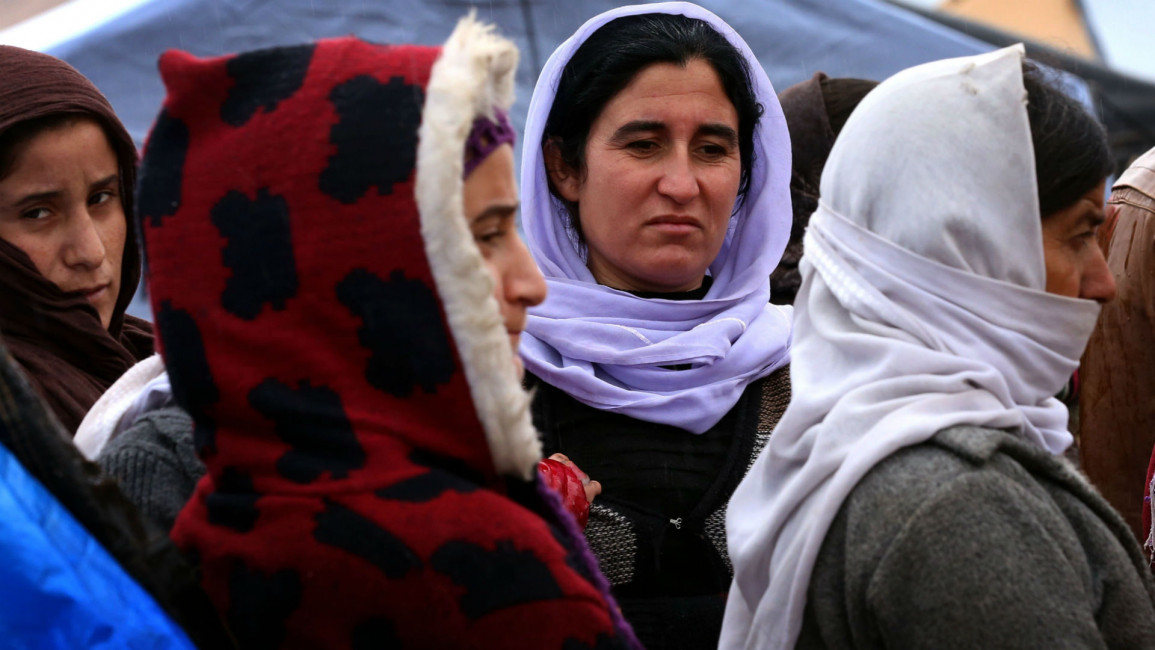Minorities in Middle East face 'higher risk' of genocide
| Many more communities in the Middle East are now at serious risk |
Minority Rights Group International's annual "Peoples under Threat" report identifies communities around the world that face high risk of mass political killing or violent repression. Four of the five worst countries in 2015 are Arab states.
Syria, where violence by the government and extremist groups including the Islamic State (IS, or ISIS) have left at least 220,000 dead and millions displaced, topped the global ranking. Iraq and Sudan were also near the top.
But the report is less of a record of violence than a tool for predicting where genocide or mass killing is imminent.
It uses a mix of tried and tested early warning signs: armed conflict, a history of mass killings, political instability and the rise of a factionalised elite, all of which have been indicators that mass killing is likely.
Mark Lattimer, Executive Director of Minority Rights Group International, said a growing number of communities across the Middle East and North Africa (MENA) region were at risk.
"Since 2011 we've seen a souring of the Arab Spring. That process continued and accelerated in 2014, with result that now many more communities in the Middle East are now at serious risk. Some are at risk now which were in a less risky position even this time last year," he told al-Araby al-Jadeed.
Sunnis in central Iraq, Bedouin in the Sinai and religious minorities in areas of north-Eastern Syria outside Kurdish control have all been at risk in recent years, but the chance of mass killing is rising fast.
In Iraq, the risk now is critical. If the government carries out its long-planned attempt to retake Mosul, almost any way it will go, will result in large number of civilian deaths," said Lattimer.
On Tuesday, thousands of Shia militiamen were preparing to retake the city of Ramadi after its fall to IS. The fight is likely to lead to sectarian revenge killings.
"In Egypt, a combination of different factors make the situation concerning," said Lattimer. "Social struggles, particularly in upper Egypt, police forces doing what they want, and a government which has both ability and has displayed willingness to use repressive force. Put that together and consider Sinai."
The group's annual report, which was first published in 2006, is intended to be an early warning mechanism that specifically raises the alarm about the risk of mass killing or repression of civilians so that the international community can take preventative action.
"There has been a focus on humanitarian military interventions after the event. We hope to promote early non-military intervention before event," said Lattimer, pointing to the diplomatic pressure that put the brakes on post-election violence in Kenya as an example of how early preventive measures can work to stop killings escalate.
The NGO, which campaigns for minority rights worldwide, raised the alarm about possible mass killings in Egypt and Libya, which have both risen in the rankings since last year.



